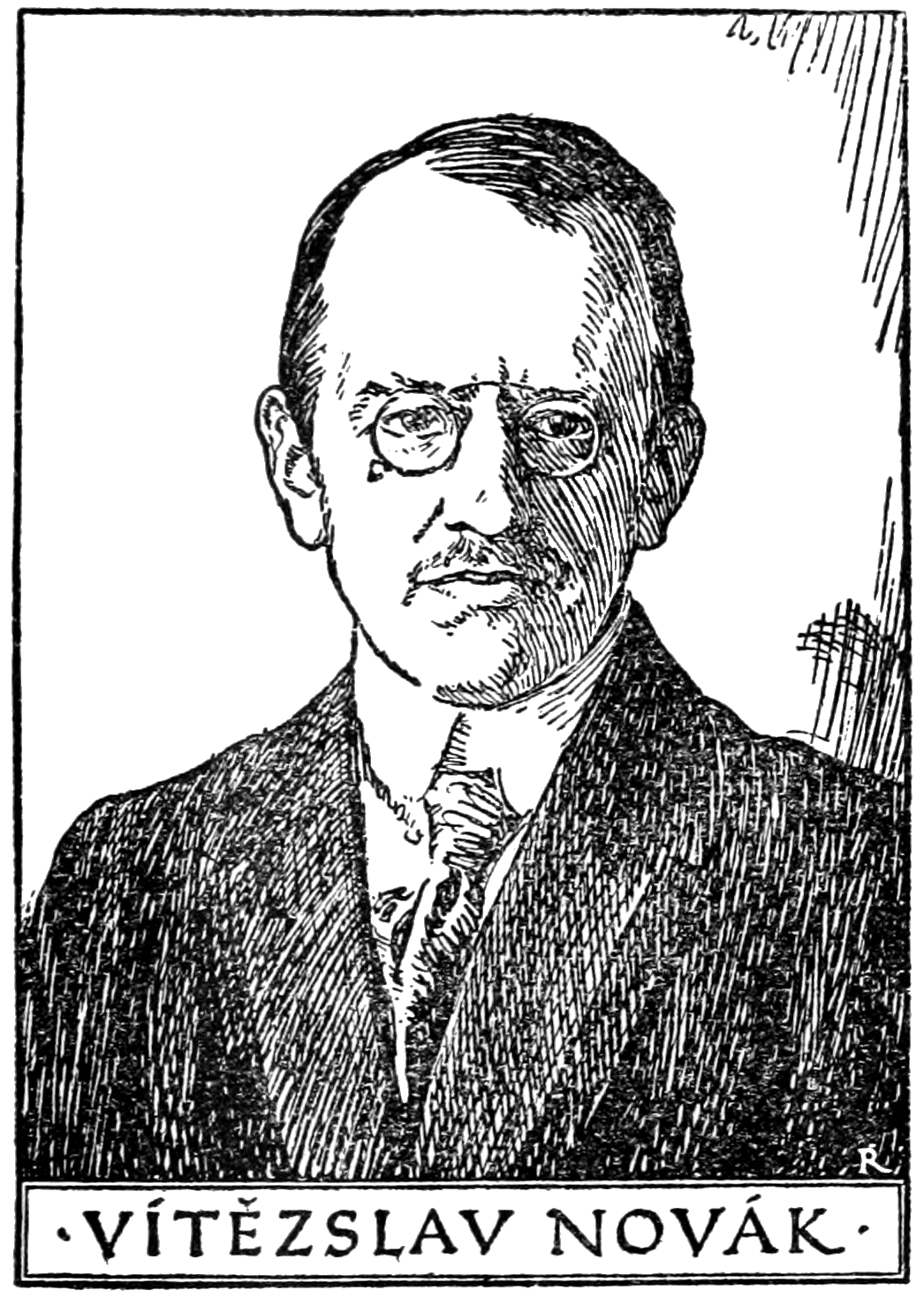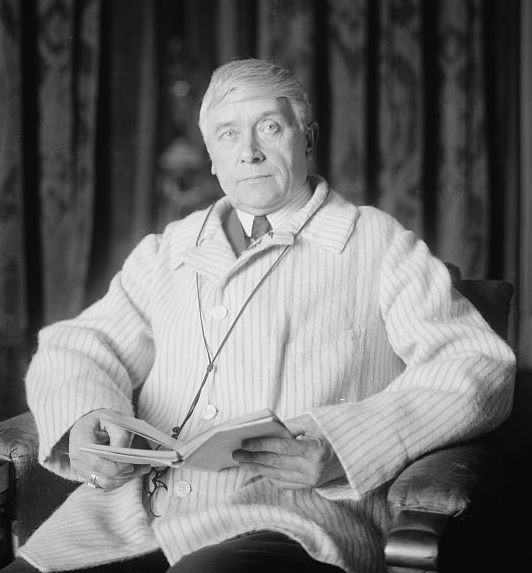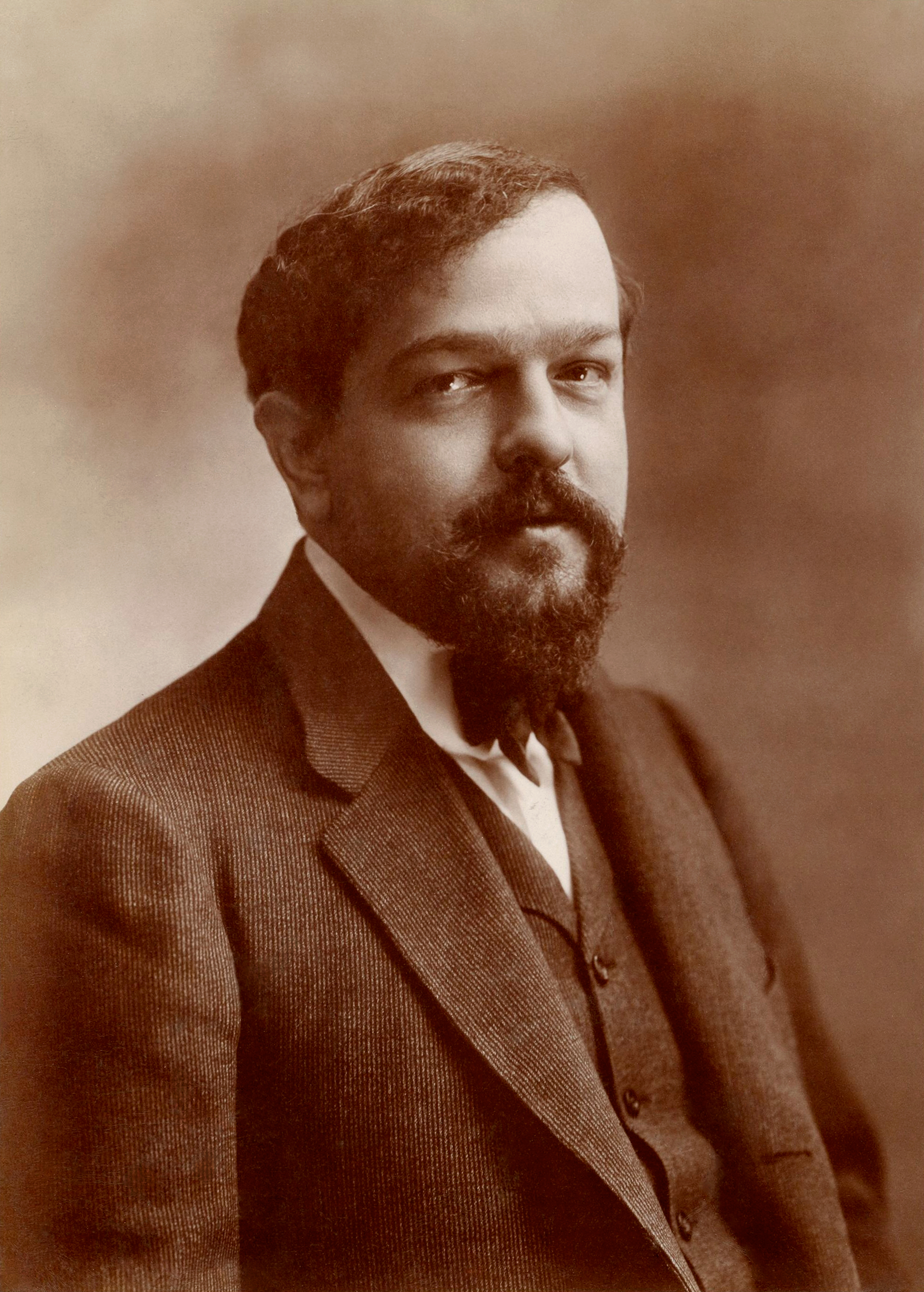|
František Neumann
František Neumann (16 June 187425 February 1929) was a Czech conductor and composer. He was particularly associated with the National Theatre in Brno, and the composer Leoš Janáček, the premieres of many of whose operas he conducted. Biography František Neumann was born in Přerov, Moravia in 1874. He attended school in Prostějov and Chrudim, then went to work in Prague while studying music under K. Sebor. He spent a year in voluntary military service at Olomouc, then joined his father's smoked meat business.''Grove's Dictionary of Music and Musicians'', 5th ed, 1954, Vol. VI, pp. 53-54 His serious music studies commenced in 1896 at the Leipzig Conservatory under Carl Reinecke and Salomon Jadassohn, and continued under Felix Mottl in Karlsruhe, where he worked as chorus master at the local theatre. Further posts were at Hamburg, Ratisbon, Linz, Liberec, Teplice and Frankfurt, where he remained until 1919. He returned to Czechoslovakia and became Chief Conductor at the ... [...More Info...] [...Related Items...] OR: [Wikipedia] [Google] [Baidu] |
Regensburg
Regensburg (historically known in English as Ratisbon) is a city in eastern Bavaria, at the confluence of the rivers Danube, Naab and Regen (river), Regen, Danube's northernmost point. It is the capital of the Upper Palatinate subregion of the state. With more than 150,000 inhabitants, Regensburg is the List of cities in Bavaria by population, fourth-largest city in the State of Bavaria after Munich, Nuremberg and Augsburg and the eighth-largest of all List of cities and towns on the river Danube, cities on the river Danube. From its foundation as an imperial Roman river fort, the city has been the political, economic and cultural centre of the surrounding region. Later, under the rule of the Holy Roman Empire, it housed the Perpetual Diet of Regensburg. The medieval centre of the city was made a UNESCO World Heritage Site in 2006 because of its well-preserved architecture, being the biggest medieval city site north of the Alps, and the city's historical importance for assembli ... [...More Info...] [...Related Items...] OR: [Wikipedia] [Google] [Baidu] |
Vítězslav Novák
Vítězslav Augustín Rudolf Novák (5 December 1870 – 18 July 1949) was a Czech composer and academic teacher at the Prague Conservatory. Stylistically, he was part of the neo-romantic tradition, and his music is considered an important example of Czech modernism. He worked towards a strong Czech identity in culture after the country became independent in 1918. His compositions include operas and orchestral works. Biography Early years Novák (baptized Viktor Novák) was born in Kamenice nad Lipou, a small town in Southern Bohemia. In 1872 the family moved to Počátky, where Novák first studied the violin with Antonín Šilhan and the piano with Marie Krejčová. After the death of his father in 1882, the family moved to Jindřichův Hradec, where Novák continued his studies at grammar school . An elementary school in the town is named after Novák today. In his late teens, he moved to Prague to study at the Prague Conservatory, changing his name to Vítězslav to i ... [...More Info...] [...Related Items...] OR: [Wikipedia] [Google] [Baidu] |
Pelléas Et Mélisande (opera)
''Pelléas et Mélisande'' (''Pelléas and Mélisande'') is an opera in five acts with music by Claude Debussy. The French libretto was adapted from Maurice Maeterlinck's symbolist play of the same name. It premiered at the Salle Favart in Paris by the Opéra-Comique on 30 April 1902; Jean Périer was Pelléas and Mary Garden was Mélisande, conducted by André Messager, who was instrumental in getting the Opéra-Comique to stage the work. It is the only opera Debussy ever completed. The plot concerns a love triangle. Prince Golaud finds Mélisande, a mysterious young woman, lost in a forest. He marries her and brings her back to the castle of his grandfather, King Arkel of Allemonde. Here Mélisande becomes increasingly attached to Golaud's younger half-brother Pelléas, arousing Golaud's jealousy. Golaud goes to excessive lengths to find out the truth about Pelléas and Mélisande's relationship, even forcing his own child, Yniold, to spy on the couple. Pelléas decides to le ... [...More Info...] [...Related Items...] OR: [Wikipedia] [Google] [Baidu] |
Claude Debussy
Achille Claude Debussy (; 22 August 1862 – 25 March 1918) was a French composer. He is sometimes seen as the first Impressionism in music, Impressionist composer, although he vigorously rejected the term. He was among the most influential composers of the late 19th and early 20th centuries. Born to a family of modest means and little cultural involvement, Debussy showed enough musical talent to be admitted at the age of ten to France's leading music college, the Conservatoire de Paris. He originally studied the piano, but found his vocation in innovative composition, despite the disapproval of the Conservatoire's conservative professors. He took many years to develop his mature style, and was nearly 40 when he achieved international fame in 1902 with the only opera he completed, ''Pelléas et Mélisande (opera), Pelléas et Mélisande''. Debussy's orchestral works include ''Prélude à l'après-midi d'un faune'' (1894), ''Nocturnes (Debussy), Nocturnes'' (1897–1899 ... [...More Info...] [...Related Items...] OR: [Wikipedia] [Google] [Baidu] |
Taras Bulba (rhapsody)
''Taras Bulba'' is a rhapsody for orchestra by the Czech composer Leoš Janáček. It was composed between 1915 and 1918 and is one of the most famous of Janáček's works. It is based on the novel by Nikolai Gogol. The first version of the work was finished on 2 July 1915, but Janáček later revised it and made substantial changes. The second, almost complete, version was finished on 29 March 1918. ''Taras Bulba'' was premiered at the National Theatre in Brno on 9 October 1921, conducted by František Neumann. The composition was dedicated to ''"our army, the armed protector of our nation"''.Score, p. VI It was published by ''Hudební matice'' in 1924 in piano duet arrangement made by Břetislav Bakala. In 1927 the full score was published with further changes. Janáček described the piece as a "rhapsody" and chose three episodes from Gogol's story to portray in this programmatic work. Description Instrumentation The music is scored for piccolo (doubling 3rd flute), 2 f ... [...More Info...] [...Related Items...] OR: [Wikipedia] [Google] [Baidu] |
The Makropulos Affair (opera)
''The Makropulos Affair'' (also ''The Makropoulos Case'', ''The Makropulos Secret'', or in ) is a Czech opera in 3 acts, with music and libretto by Leoš Janáček. Janáček based his opera on the play '' Věc Makropulos'' by Karel Čapek. Composed between 1923 and 1925, ''The Makropulos Affair'' was his penultimate opera and, like much of his later work, was inspired by his infatuation with Kamila Stösslová, a married woman much younger than himself. The opera received its world premiere at the National Theatre in Brno on 18 December 1926, conducted by František Neumann. Composition history Janáček had seen the play early in its run in Prague on 10 December 1922 and immediately saw its potential as an opera. He entered into a correspondence with Čapek, who was accommodating towards the idea, but legal problems in securing the rights to the play delayed work. When these problems resolved on 10 September 1923, Janáček began work on the opera. By December 1924, he had c ... [...More Info...] [...Related Items...] OR: [Wikipedia] [Google] [Baidu] |
Šárka (Janáček)
''Šárka'' is an opera in three acts by Leoš Janáček to a Czech libretto by Julius Zeyer, based on the Maidens' War, Bohemian legends of Šárka in ''Chronicle of Dalimil, Dalimil's Chronicle''. Written in 1887 in music, 1887, the opera lay unproduced for many years and was first performed at the ''Divadlo na Hradbách'' (today's Mahen Theatre) in Brno on 11 November 1925 in honour of Janáček's 71st birthday. Performance history The premiere of the Ur-version (1887) of ''Šárka'' took place on 26 November 2010 at the Reduta Studio Theatre Brno as part of the Janáček Biennale, conducted from the piano by Ondrej Olos, with Lucie Kašparová in the title role. This first version (of which 30% of the music is retained in the score generally performed today) was sent to Dvořák for comment, but rested in the Janáček archive until 2010; the final version, with fewer motives and longer set-pieces, presages his mature works.Tyrell J., "Report from Brno", ''Opera (British magaz ... [...More Info...] [...Related Items...] OR: [Wikipedia] [Google] [Baidu] |
The Cunning Little Vixen
''The Cunning Little Vixen'' (original title ''Příhody lišky Bystroušky'' or ''Tales of Vixen Sharp-Ears'' in English), is a three-act Czech-language opera by Leoš Janáček completed in 1923 to a libretto the composer himself adapted from a novella by Rudolf Těsnohlídek. Name The opera's libretto was adapted by the composer from a 1920 serialized novella, ''Liška Bystrouška'', by Rudolf Těsnohlídek, which was first published in the newspaper ''Lidové noviny'' (with illustrations by Stanislav Lolek). For the title of the opera, ''Příhody'' means ''tales''; ''lišky'' is the genitive of ''vixen''. ''Bystroušky'', still genitive, is the pun ''sharp'', having the double meaning of ''pointed'', like fox ears, and ''clever''. The opera first became familiar outside Czechoslovakia in a 1927 German adaptation by Max Brod who provided the new name ''Das schlaue Füchslein'', by which Germans still know it and which in English means ''The Cunning Little Vixen''. Compositi ... [...More Info...] [...Related Items...] OR: [Wikipedia] [Google] [Baidu] |
Káťa Kabanová
''Káťa Kabanová'' (also known in various spellings including ''Katia'', ''Katja'', ''Katya'', and ''Kabanowa'') is an opera in three acts, with music by Leoš Janáček to a libretto by the composer based on ''The Storm (Ostrovsky), The Storm'', a play by Alexander Ostrovsky, translated by . The opera was also largely inspired by Janáček's love for Kamila Stösslová. Although he was 67 when it was premiered, ''Káťa Kabanová'' is a clear response to Janáček's feelings for Kamila, and the work is dedicated to her. The first performance was at the National Theatre Brno on 23 November 1921. The opera has had a complex publication history. František Neumann, the conductor of the opera's first performance, made changes that were incorporated into the first publication of the score in 1922 by Universal Edition. Conductor Václav Talich later produced a "re-orchestrated" version of the score. In 1992, Sir Charles Mackerras published a Critical edition (opera), critical edition ... [...More Info...] [...Related Items...] OR: [Wikipedia] [Google] [Baidu] |
Czechoslovakia
Czechoslovakia ( ; Czech language, Czech and , ''Česko-Slovensko'') was a landlocked country in Central Europe, created in 1918, when it declared its independence from Austria-Hungary. In 1938, after the Munich Agreement, the Sudetenland became part of Nazi Germany, while the country lost further territories to First Vienna Award, Hungary and Trans-Olza, Poland (the territories of southern Slovakia with a predominantly Hungarian population to Hungary and Zaolzie with a predominantly Polish population to Poland). Between 1939 and 1945, the state ceased to exist, as Slovak state, Slovakia proclaimed its independence and Carpathian Ruthenia became part of Kingdom of Hungary (1920–1946), Hungary, while the German Protectorate of Bohemia and Moravia was proclaimed in the remainder of the Czech Lands. In 1939, after the outbreak of World War II, former Czechoslovak President Edvard Beneš formed Czechoslovak government-in-exile, a government-in-exile and sought recognition from the ... [...More Info...] [...Related Items...] OR: [Wikipedia] [Google] [Baidu] |
Frankfurt
Frankfurt am Main () is the most populous city in the States of Germany, German state of Hesse. Its 773,068 inhabitants as of 2022 make it the List of cities in Germany by population, fifth-most populous city in Germany. Located in the foreland of the Taunus on its namesake Main (river), Main, it forms a continuous conurbation with Offenbach am Main; Frankfurt Rhein-Main Regional Authority, its urban area has a population of over 2.7 million. The city is the heart of the larger Rhine-Main metropolitan region, which has a population of more than 5.8 million and is Germany's Metropolitan regions in Germany, second-largest metropolitan region after the Rhine-Ruhr metropolitan region, Rhine-Ruhr region and the List of EU metropolitan regions by GDP#2021 ranking of top four German metropolitan regions, fourth largest metropolitan region by GDP in the European Union (EU). Frankfurt is one of the ''de facto'' four main capitals of the European Union (alongside Brussels, Luxembourg Cit ... [...More Info...] [...Related Items...] OR: [Wikipedia] [Google] [Baidu] |





